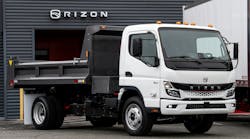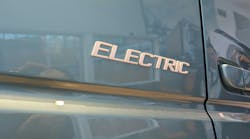With new fuel efficiency and greenhouse gas standards expected to be proposed within the next two months, we’re looking at how these standards benefit the trucking industry, which is the source of 6% of U.S. climate warming emissions.
The most obvious benefits are the lower lifecycle costs more efficient trucks provide today. Strong, long-term standards also benefit the industry in the mid-term by encouraging manufacturers to perfect and scale improved efficiency solutions. For example, the U.S. Energy Information Agency projects that the average efficiency of a new heavy truck in 2025 will be 6.8 MPG. With strong standards in place, the average efficiency of a new tractor-trailer truck could be 10.7 MPG – saving over $20,000 a year in fuel.
There is a third way the trucking industry benefits too. It’s the long-term strength of our infrastructure. A warming climate will have major ramifications. A 2014 assessment report from leading researchers, found among other impact that:
- “Sea level rise, coupled with storm surge, will continue to increase the risk of major coastal impacts on transportation infrastructure, including both temporary and permanent flooding of airports, ports and harbors, roads, rail lines, tunnels, and bridges”
- “Extreme weather events currently disrupt transportation networks in all areas of the country; projections indicate that such disruptions will increase”
Ramifications such as these would require major investments to adapt to climate-related impacts. Examples include:
- adjusting bridge clearances to accommodate safe passage of large vessels
- elevating main access roads to marine port facilities
- increasing need for sediment removal from navigation channels
- expanding the capacity of storm drainage systems for highways, tunnels and city streets to handle extreme weather events and prevent localized flooding
The researchers concluded that there is “substantial evidence that costs will be significant,” noting several examples of multi-billion dollar projects for adapting roadways to a warmer climate.
If we choose not to act to reduce greenhouse gas emissions today, we are choosing by default a massive investment to adapt our roads, ports, bridges, tunnels, railways and other critical transportation infrastructure to a warmer world.
The funds to do this, of course, will need to come from somewhere. They will compete with and divert resources that otherwise could be used to maintain or improve existing infrastructure – further straining productivity and exacerbating congestion.
Improving fuel efficiency of heavy trucks saves the trucking industry money today, enables greater savings tomorrow, and helps to safeguard the vital infrastructure upon which the industry depends.


